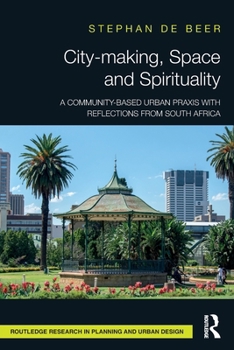City-making, Space and Spirituality: A Community-Based Urban Praxis with Reflections from South Africa
This book is about the soul of the city, embodied in its spaces and people. It traces dynamics in inner city neighbourhoods of South Africa's post-apartheid capital, Pretoria. Viewing the city through its most vulnerable people and places, it recognizes that urban space is never neutral and shaped by competing value frameworks.
The first part of the book invites planners, city-makers, and ordinary urban citizens, to consider a new self-understanding, reclaiming their agency in the city-making process. Through the metaphor of "becoming like children", planning practice is deconstructed and re-imagined. A praxis-based methodology is presented, cultivating four distinct moments of entering, reading, imagining and co-constructing the city. After deconstructing urban spaces and discourses, the second part of the book explores a concrete spirituality and ethic of urban space. It argues for a shift from planning as technocracy, to planning as immersed, participatory artistry: opening up to the "genius" of space, responsive to urban cries, and joining to construct new, soul-full spaces. Local communities and interconnected movements become embodiments of urban alternatives - through resistance and reconstruction; building on local assets; animating local reclamations; and weaving nets of hope that will span the entire city.
Providing a concrete methodology for city-making that is rooted in a community-based urban praxis, this book will be of interest to urban planning researchers, professional planners and designers and also grass-root community developers or activists.





